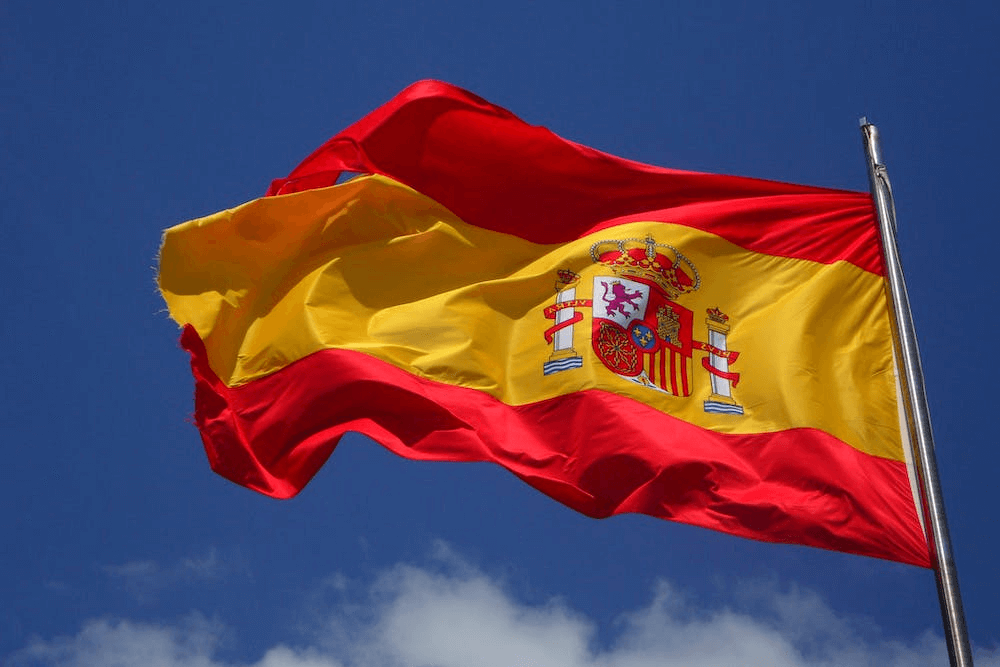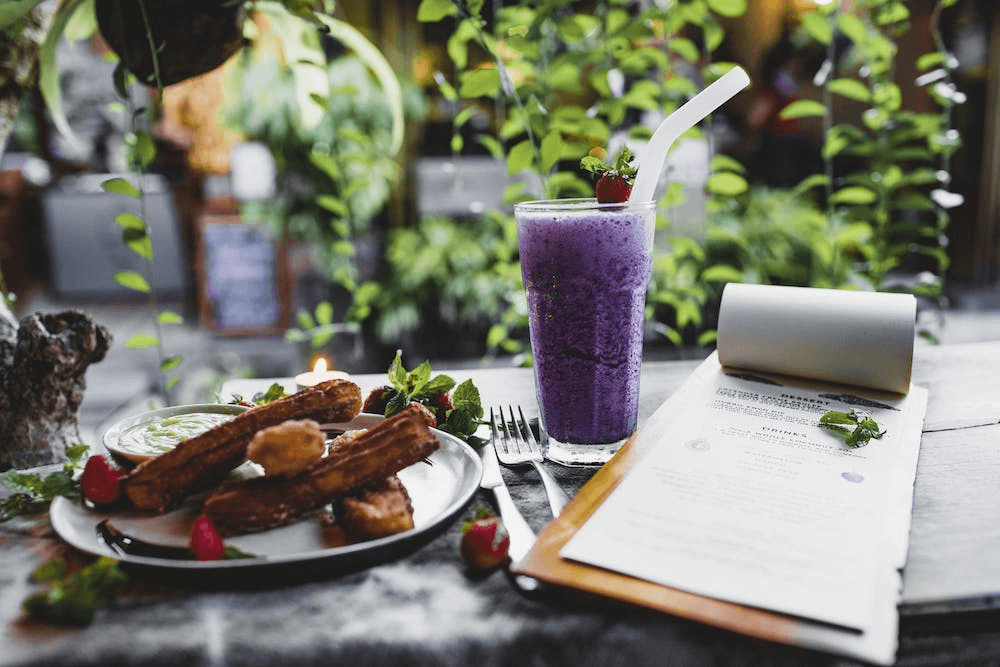📑Table of Contents:
In the tapestry of Spanish culture, breakfast, or “Desayuno,” weaves a story of tradition, regional diversity, and the art of taking time to start the day right. Unlike the hurried morning meals elsewhere, breakfast in Spain is an ode to simplicity and enjoyment. This expanded guide invites you on a culinary journey to savor the essence of Spanish mornings.
Spaniards have long cherished their breakfast rituals, with many cafes and bakeries bustling with patrons indulging in their morning repast. In fact, according to recent statistics, over 80% of Spaniards consume breakfast outside the home at least once a week, highlighting the significance of this meal in Spanish daily life.

Furthermore, Spanish breakfast rituals reflect the country’s laid-back approach to life. The day begins softly, with light fare at home, followed by a heartier mid-morning pause. This second breakfast often savored in cafes, is where the true flavors of Spain shine through.
Regional Breakfast Specialties (Diving into Diversity)
Spain’s culinary landscape is as varied as its geography. Here’s a closer look at how different regions greet the morning:
- Andalusia: Famous for “pan con tomate,” a rustic bread rubbed with fresh tomato and drizzled with olive oil, often accompanied by cured ham or cheese.
- Madrid: The capital city loves its “churros con chocolate,” a beloved treat that pairs perfectly with the city’s bustling energy.
- Basque Country: Here, breakfast may include “pintxos,” small snacks similar to tapas, which showcase the region’s gourmet prowess.
- Catalonia: “Pa amb tomàquet” (Catalan version of pan con tomate) and local sausages make frequent appearances on the breakfast table.
- Galicia: The cooler mornings are warmed with freshly baked bread, local cheeses, and perhaps a slice of “Tarta de Santiago,” a traditional almond cake.
Navigating social interactions in a new language can be daunting, but getting the basics right can make a world of difference. If you’re keen on making a great first impression while exploring Spanish-speaking cultures, our guide on mastering the Spanish greeting is an essential read. This resource provides you with the phrases, customs, and etiquette needed to greet others confidently in Spanish, ensuring you start every conversation on the right foot and truly connect with those you meet.
Key Components of a Traditional Spanish Breakfast
- Beverages: “Café con leche” (coffee with milk) reigns supreme, though freshly squeezed orange juice is also a popular choice.
- Bread and Pastries: From “tostadas” to sweet pastries, baked goods are a staple. The simplicity of toasted bread with toppings like olive oil, tomato, and garlic celebrates the quality of local ingredients.
- Sweets and Treats: Besides churros, other sweets like “Magdalena” (small sponge cakes) are enjoyed.
- Savory Options: “Tortilla Española” offers a hearty, savory option alongside various cured meats and cheeses.
Recreating a Spanish breakfast not only introduces you to the flavors of Spain but also provides a delightful culinary adventure. Did you know that Spain is the third-largest producer of olive oil in the world, with over 1.2 million metric tons produced annually? Incorporating this liquid gold into your breakfast recipes adds an authentic Spanish touch. Additionally, Spain boasts a rich tradition of coffee consumption, with approximately 17 kilograms of coffee consumed per capita annually. Experimenting with different coffee preparations, such as café con leche or cortado, allows you to savor Spain’s coffee culture from the comfort of your home.
Additionally, for those dreaming of a luxurious getaway that blends adventure with relaxation, look no further than El Conquistador Resort. Nestled in the stunning landscapes of Puerto Rico, this world-class resort offers everything from thrilling outdoor activities to serene spa experiences, ensuring an unforgettable escape for every type of traveler.
Emphasizing the Social Aspect
In Spain, breakfast transcends the mere act of eating. It embodies a cherished ritual of connection and community. Mornings offer a unique opportunity to slow down and value the company of others. Whether it’s a family gathering around the table or friends meeting at a local café, the social fabric of Spanish life weaves through these interactions.
Firstly, consider the tradition of sharing “tostadas.” People often order this simple yet beloved dish to split amongst the group. This act of sharing not only divides the meal but also multiplies the joy and camaraderie among everyone. Furthermore, the mid-morning break for a more substantial breakfast becomes a prime time for social engagement. Colleagues step away from their desks to enjoy a café together, strengthening bonds over shared stories and laughter.
Moreover, the setting plays a crucial role. Spanish cafes and eateries, bustling with life, foster a sense of belonging. They serve as stages for daily social rituals, where the baristas know your name and your preferred order. These places become extensions of the home, spaces where personal connections flourish.
Additionally, the weekend breakfast or brunch offers a more extended period of socializing. Families and friends linger longer, allowing conversations to unfold naturally. It’s a time when people truly engage, leaving the rush of the weekday behind.
In Spain, the tradition of leisurely weekend breakfasts holds strong, with over 70% of households partaking in this cultural ritual regularly. This statistic underscores the significance of these gatherings in Spanish social life, where food and conversation blend seamlessly.
In essence, the social aspect of breakfast in Spanish culture highlights the importance of community and personal relationships. It reminds us that meals are not just about nourishment for the body but also for the soul. Adopting this approach can transform our daily routines, making each meal an opportunity to connect, share, and enrich our social lives.
By embracing these moments, we can introduce a slice of Spanish warmth and conviviality into our own lives, regardless of where we are in the world.

Conclusion
Breakfast in Spanish culture is a testament to the country’s love for good food and good company and taking life one moment at a time. From the diverse regional dishes that paint a flavorful picture of Spain’s culinary heritage to the simple joy of a well-made café con leche, Spanish breakfast is an experience to be cherished.
Finding the perfect vacation spot that welcomes your furry friends just got easier. Our selection of pet-friendly Airbnb listings ensures you don’t have to leave your beloved pets behind.
By incorporating some of these traditions into your routine, you can start every day with a little Spanish sunshine, no matter where you are in the world.





